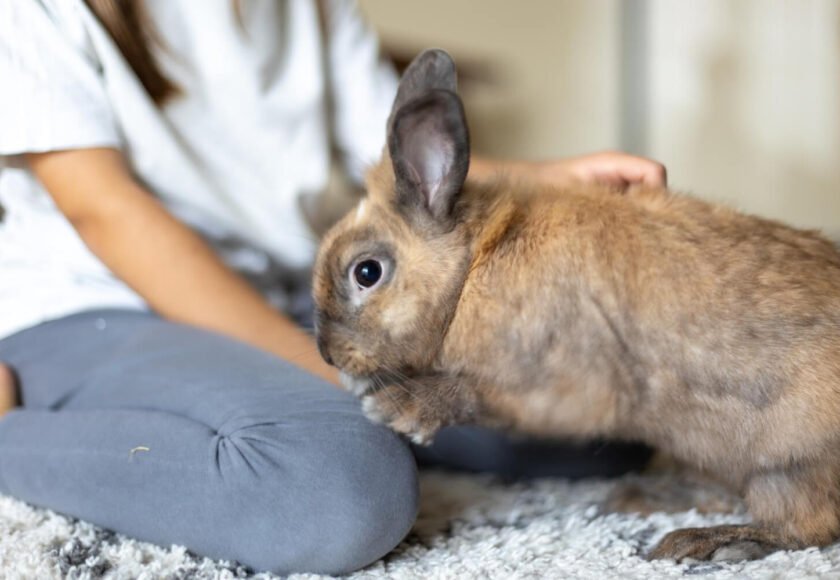Cats are one of the favorite choices as pets around the world, appreciated for their independent yet affectionate nature. They make very good companions for those with contrasting lifestyles, offering emotional support and entertainment. Their entertaining characters, low maintenance requirements, and flexibility make them ideal friends for many families.
Nevertheless, as with any pet, having a cat involves responsibilities and difficulties. Some like how independent-made things are, but others could say that they’re too aloof or clingy. If you’re considering adopting a cat, balance both pros and cons to find out whether this is the ideal option for you.
Why Are Cats Popular as Pets?
Cats have been loving companions for centuries, and their popularity grows unabated. Their unique blend of independence and affection makes them the perfect companion for pet owners across the board. Cats, unlike dogs, require less space and maintenance, making them ideal for individuals with busy lifestyles or living in small spaces.
Following are some of the most important reasons why cats make great pets.
- Low Maintenance – Cats are independent animals that groom themselves and require little training.
- Great for Small Spaces – Cats are ideal for small areas because they do not require large yards or a daily walk, like dogs.
- Affectionate Yet Independent – Cats can provide ample hugs and purr contentedly but prefer time alone.
- Quiet and Well-Behaved – They don’t bark or make loud noises, making them suitable for quiet households.
- Provide Emotional Support – Many cat owners find comfort in their presence, as cats help reduce stress and anxiety.
- Natural Pest Control – Cats are excellent hunters and can help keep homes free from rodents and insects.
- Long Lifespan – With proper care, cats can live for 12-20 years, offering companionship for a long time.
- Clean and Odor-Free – They instinctively use a litter box and regularly groom themselves, maintaining cleanliness.
These qualities make cats an excellent choice for pet lovers looking for a companion that is both independent and affectionate.
Are Cats Good Pets: Top Reasons for Having or Not Having Cats as Pets
Cats are beloved pets for many households, offering companionship, entertainment, and even therapeutic benefits. They are known for their independent yet affectionate nature, making them great for people who want a pet that doesn’t require constant attention. However, while cats have many positive traits, they may not be the right fit for everyone.
Before bringing a cat home, it’s important to consider both the advantages and potential drawbacks. Below are the key pros and cons of having a cat as a pet.
Pros of Having a Cat as a Pet
Cats bring joy, companionship, and a host of other benefits to their owners. Their playful yet low-maintenance nature makes them ideal pets for various lifestyles.
1. Low Maintenance and Independent
Unlike dogs, cats do not require frequent walks or constant attention. They can entertain themselves and are content being alone for long periods, making them ideal for busy individuals.
2. Great for Small Spaces
Cats don’t need large yards or excessive space to be happy. They can comfortably live in apartments and small homes as long as they have toys, scratching posts, and a cozy spot to rest.
3. Provide Emotional Support and Stress Relief
Cats are known for their calming presence. Their gentle purring and affectionate behavior can reduce stress, anxiety, and loneliness, making them excellent emotional support animals.
4. Naturally Clean and Odor-Free
Cats groom themselves regularly, keeping their fur clean and reducing the need for frequent baths. They also instinctively use a litter box, making house training easy.
5. Excellent Pest Control
A natural hunting instinct makes cats effective at keeping homes free from rodents and insects. Even the presence of a cat can deter pests from entering a household.
6. Long Lifespan and Lifelong Companionship
Cats have a long lifespan, often living between 12 to 20 years with proper care. This means they can provide long-term companionship and love for their owners.
Cons of Having a Cat as a Pet
While cats make great pets, they also come with certain challenges. It’s essential to consider these factors before deciding to bring a cat into your home.
1. Can Be Aloof and Independent
Unlike dogs, cats may not always seek attention or show affection when you want them to. Some cats prefer solitude and may not be as openly loving as other pets.
2. Litter Box Maintenance
While cats don’t need to be walked, cleaning their litter box regularly is necessary. If not maintained, it can lead to unpleasant odors and hygiene issues in the home.
3. Potential for Scratching and Property Damage
Cats have a natural urge to scratch, which can lead to damaged furniture, carpets, and curtains. While scratching posts can help, not all cats take to them immediately.
4. Can Trigger Allergies
Cat fur and dander can be a problem for people with allergies. Even hypoallergenic cat breeds still produce allergens that may cause reactions in sensitive individuals.
5. Cost of Veterinary Care and Supplies
While cats are generally low-maintenance, they still require vaccinations, regular check-ups, and potential emergency vet visits. Additionally, food, litter, and toys can add up over time.
6. Nighttime Activity and Unpredictable Behavior
Cats are often more active at night, which can be disruptive to owners who prefer uninterrupted sleep. Some cats may also exhibit unpredictable behavior, such as sudden zoomies or knocking things over.
Owning a cat can be a rewarding experience, but it’s essential to consider both the pros and cons before making a decision. If you’re looking for a low-maintenance pet that provides companionship and entertainment, a cat may be a great choice. However, if you’re sensitive to allergens, dislike cleaning a litter box, or prefer a highly interactive pet, a cat may not be the best fit. Understanding their unique traits will help ensure a happy relationship between you and your feline companion.
Things to Consider Before Getting a Cat
Bringing a cat into your home is a long-term commitment that requires careful thought and preparation. While cats are generally low-maintenance compared to some other pets, they still need time, care, and financial investment. Before adopting a feline friend, it’s important to evaluate whether you can meet their needs and provide a suitable environment.
Here are some key factors to consider before getting a cat:
- Time and Commitment – Cats can live up to 20 years, requiring long-term care, attention, and companionship.
- Space Availability – Ensure your home has enough room for your cat to move around comfortably, along with designated spaces for food, litter, and rest.
- Financial Responsibility – Consider costs for food, vet visits, vaccinations, litter, grooming, and emergency care.
- Allergies and Household Members – Check if anyone in your household is allergic to cats, as cat dander can trigger allergic reactions.
- Litter Box Maintenance – Be prepared to clean the litter box daily to maintain hygiene and prevent odor buildup.
- Pet-Proofing Your Home – Cats are naturally curious and may scratch furniture or knock over items. Investing in scratching posts and cat-proofing your home is essential.
- Other Pets in the Household – If you already have other pets, consider whether they will get along with a cat and how to introduce them properly.
- Activity Level and Attention Needs – Some cats are highly active and need interactive playtime, while others are more independent. Choose a breed or personality that matches your lifestyle.
- Travel and Lifestyle Considerations – If you travel frequently or work long hours, ensure you have someone to care for your cat in your absence.
- Adoption vs. Buying – Consider adopting from a shelter, as many cats need loving homes. If buying from a breeder, ensure they are ethical and reputable.
By taking these factors into account, you can determine whether a cat is the right pet for you and ensure a happy and healthy life for your future feline companion.
Related Blog: How to Care for a Cat: A Beginner’s Guide for First-Time Owners
FAQs About Are Cats Good Pets
Cats are wonderful companions, but potential pet owners often have many questions about their care and behavior. Here are some frequently asked questions about whether cats make good pets.
Q1. Are cats easy to train?
Cats can be trained, but they are not as obedient as dogs. They respond best to positive reinforcement and consistency. While litter training is usually effortless, teaching tricks or commands may take patience and rewards like treats or toys.
Q2. Do cats require a lot of maintenance?
Cats are generally low-maintenance pets. They groom themselves, use a litter box, and don’t need daily walks. However, they still require feeding, regular vet check-ups, playtime, and a clean living environment to stay happy and healthy.
Q3. What type of food is best for cats?
A balanced diet of high-quality commercial cat food, whether dry or wet, is ideal. Cats are obligate carnivores, meaning they require animal-based proteins. Avoid feeding them human food, especially toxic items like chocolate, onions, and dairy.
Q4. Are indoor cats healthier than outdoor cats?
Yes, indoor cats are generally healthier and live longer than outdoor cats. They are less exposed to dangers like traffic, predators, diseases, and harsh weather conditions. However, they still need mental stimulation and exercise to stay active and happy.
Q5. Do cats recognize their owners?
Yes, cats recognize their owners through scent, voice, and routine. While they may not show affection in the same way as dogs, many cats form strong bonds with their humans and demonstrate love through purring, head-butting, and following them around.
Conclusion
Cats make wonderful pets for the right owner, offering companionship, affection, and a relatively low-maintenance lifestyle. Their independent nature, playful personalities, and ability to adapt to different living spaces make them a great choice for many households. However, they also require care, commitment, and consideration of factors like allergies, expenses, and their unique behavior.
Before getting a cat, it’s important to weigh the pros and cons to ensure you can provide a loving and suitable home. If you’re ready for the responsibility, a feline companion can bring joy, comfort, and years of companionship into your life.



